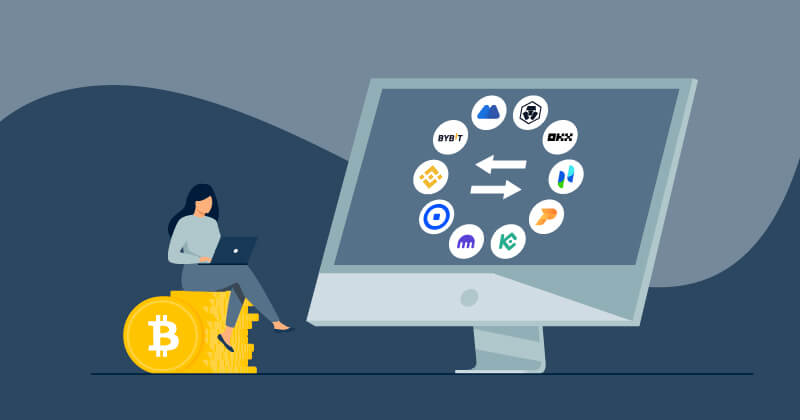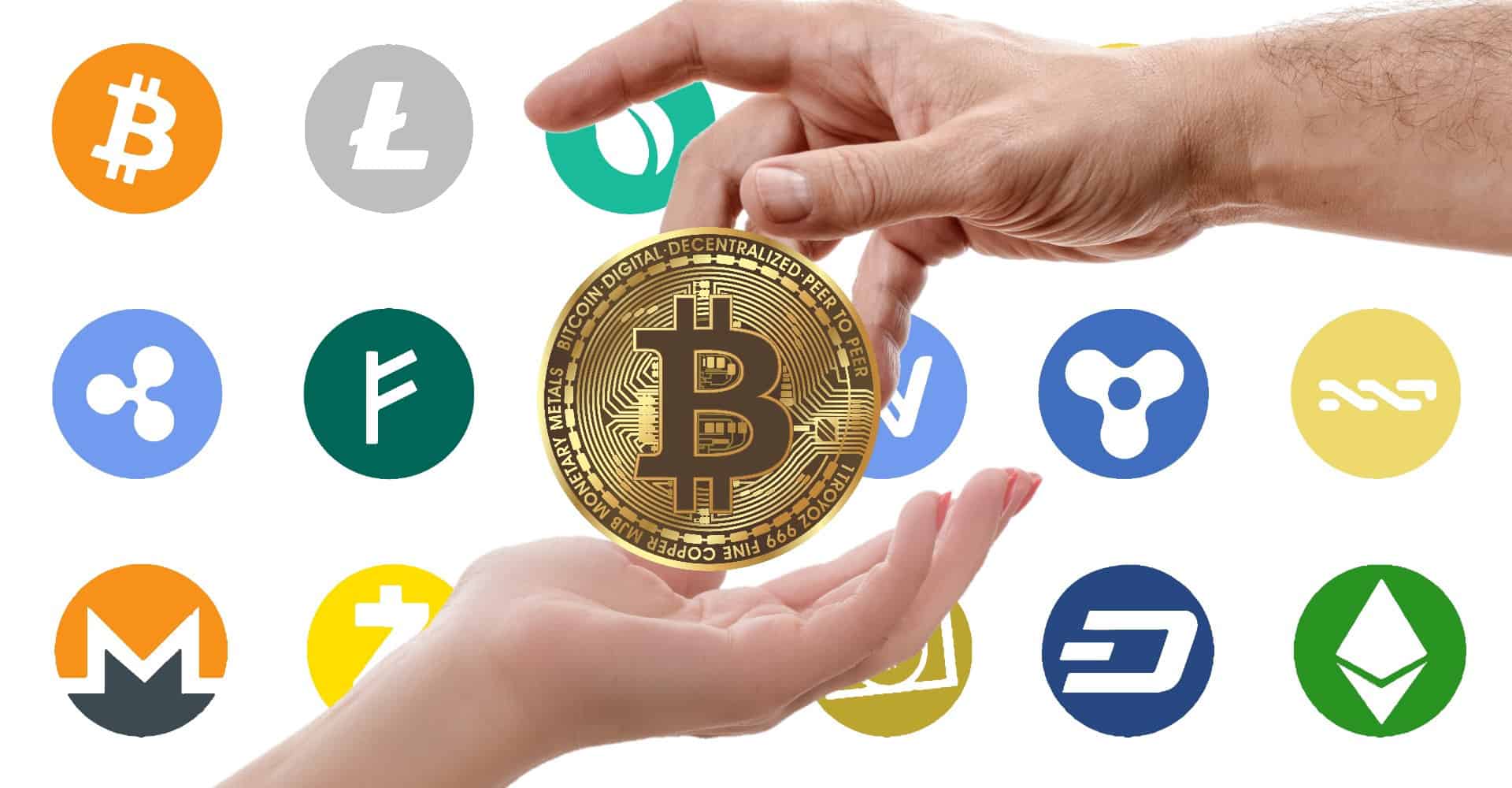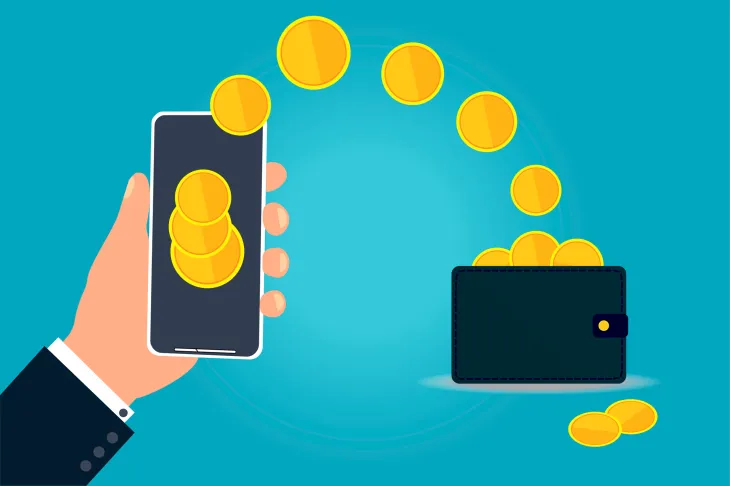Cryptocurrency Safeguarding: Mastering Mighty Passwords and Security Measures
Your wealth is digital—and so are the threats to it. That’s why setting up strong passwords and security measures for your crypto wallet isn’t just wise; it’s critical. I’ll guide you through shielding your virtual coins from cyber thugs keen on cracking your crypto cache. First stop? The bedrock of your digital defense: the essentials of crypto wallet security. Get ready to craft unbreakable passwords and fortify your private key fort. Protect your digital gold like a pro with secrets I’ve mined from the depths of the crypto world. It’s time to turn the lock on your digital vault to ‘ultra-secure’.
Understanding the Essentials of Crypto Wallet Security
Crafting Unbreakable Passwords for Your Wallet
Strong passwords are your first defense line. Think of them like a steel vault door. They keep out unwanted guests from your digital coins. A weak password is like a door left unlocked. Anyone could walk in. Make sure it is complex, so it’s tough to crack. Use letters, numbers, and symbols in it. And no, “password123” doesn’t count!
Create a passphrase for your digital wallet. A passphrase is a set of words that you can remember but hard for others to guess. It’s like secret code only you know. Make it long to be more secure. A sentence that means something to you works great. Add a sprinkle of numbers and symbols. Now, it’s tougher than ever.
Update your wallet’s password often. This keeps your security fresh and hard to beat. Think of it as changing your locks regularly. Old keys won’t work anymore. And always, only you control who gets the new key.
The Significance of Private Key Protection and Secure Seed Phrase Storage
Your private key is like your crypto’s DNA. It’s unique to you and your wallet. Keep it safe at all costs. If someone gets it, they could take your crypto. Keep your private key protected, always. Don’t share it, not even with friends. It’s meant for your eyes only.
For secure seed phrase storage, think of your seed phrase as the master key to your crypto house. It can unlock everything. Write it down, but not on your computer or phone. Those can be hacked. Keep it on paper, in a safe, or another secure place. If you lose it, getting back into your crypto house could be impossible.
Remember, a layered security is best. Don’t just rely on one method. Use many ways to keep your wallet safe, like a castle with walls, moat, and guards. Each layer adds more protection.
Private keys, passphrases, and regularly updated passwords are like your fortress. They keep your crypto safe from the bad guys. And in the world of digital coins, always be your security’s hero. Keep learning, keep updating, and keep everything locked up tight.
Advanced Security Measures: Beyond the Basics
The Role of Multifactor Authentication and Biometric Security in Cryptocurrency
We know passwords are the keys to our digital kingdom. With hacking on the rise, tapping into multifactor authentication crypto methods will make a thief’s work way harder. Multifactor authentication (MFA) means you use two or more proofs of you being you before you can access your wallet. This often combines something you know, like your passphrase for a digital wallet, with something you have, such as your phone, or even something you are, which is where biometric security cryptocurrency comes into play.
Biometric security uses your unique human traits to lock down your wallet. Think fingerprints, face scans, or even voice patterns. These details are tough to fake, making biometric security cryptocurrency extra tough for cyber crooks. This means with biometrics, even if someone guesses your password, they still can’t get in without your fingerprint or face.
Embracing Encryption Standards and Regular Software Updates for Wallets
Encryption is like a secret code for your wallet. It scrambles your data so that only someone with the right key can read it. Encryption standards for wallets are always getting better. These keep your private key protection strong. To make use of the best, updating wallet software regularly is a must. Each update might fix holes that hackers could slip through.
Old software is like an old lock that thieves have learned to pick. By keeping your wallet software fresh, you use new locks that thieves have yet to figure out. It’s a simple step with big effects. When you encrypt your wallet, you seal your digital valuables behind a wall that only you have the key to. Your data stays garbage to anyone without your secret code.
Regular updates seal the deal, making sure that secret code stays a secret. Even the smartest of cyber thieves find it tough to crack. The deal is to combine encryption with updates to keep your digital treasures safe. Together they make sure you’re the only one buying your morning coffee with your crypto coins, not some hacker.
To sum up, let’s keep it tight. Use multifactor authentication to stop those sneaky sneaks. Go biometric for that sci-fi movie-level security. Roll with encryption so your wallet speaks in riddles. Stay sharp and update your software. Easy stuff that keeps you, your wallet, and your future filled with crypto.
The Unseen Dangers: Protecting Your Digital Assets
Navigating the Risks of Public Networks and Phishing in Crypto
Crypto thieves are smart. They love public Wi-Fi to snatch your crypto. At your favorite coffee shop, you might just give away more than a smile. Without you knowing, someone can grab your crypto wallet’s details. Bad news, right? But don’t worry. There are good ways to stay safe.
One, don’t deal with crypto on public Wi-Fi. It’s really not safe. If you have to, use a VPN. A VPN hides what you do from others. It’s like having a secret path online that no one else can see.
There’s also this nasty trick called phishing. It’s where bad folks trick you into giving them your info. They may send a fake email or link that seems real but isn’t. Always check links and email addresses carefully. Think you got a weird email from your crypto place? Don’t click. Head to their real site instead or call them up and ask, “Did you send this?”
Remember, your wallet’s safety is in your hands.
Strategies for Backing Up Wallet Data and Implementing Recovery Plans
Back up your crypto wallet, and you back up your digital gold. Picture this: your computer crashes. Where’s all your crypto? If you backed it up, it’s safe and sound. And if it’s not backed up? Well, you might be out of luck.
Here’s how you back up: copy down your private key or seed phrase. This is a super secret bunch of words or numbers that gets your crypto back if things go bad. Keep it somewhere only you can get to. Like a safe, or maybe with someone you trust a lot.
Now, let’s talk recovery plans. A good plan is a map that shows you how to get your crypto back if something goes wrong. Part of the plan is knowing your seed phrase or private key by heart. It’s also smart to have a trusted buddy or family member who knows how to recover your things if you can’t.

Beginner Crypto Wallet Comparison
But remember, don’t just have it written down in one spot. Have copies in different places. One at home, maybe one with someone you trust. Even one in a safe deposit box. That way, if ever you lose one, you’ve got a backup plan.
And here’s something important: test your backup! Try to restore your wallet with the backup to make sure it all works. Don’t wait until you need to recover to learn your backup doesn’t work. It’s like having a spare tire. You want to know it’s there and it works before you get a flat.
Keeping your crypto safe isn’t hard. It’s all about making smart moves and having good habits. Back up your wallet, stay off public Wi-Fi when dealing with crypto, and watch out for those phishing hooks. Do these, and you’re on your way to keeping your digital treasure safe.
Proactive Defense: Fortifying Your Wallet Against Intrusions
Choosing and Utilizing Hardware Wallets and Anti-Virus Protection Effectively
When you leap into crypto, think security first. A hardware wallet keeps your coins offline. It locks away your private key, so hackers can’t touch it. Want one of the best? Look at Trezor or Ledger. They work great! And, they make stealing your crypto tough work for thieves. Think of them like personal vaults. They’re small but super strong.
Mind your computer safety, too! Viruses can sneak in and steal info. You need good anti-virus software. It watches your back, stopping sneaky malware cold before it grabs your wallet keys. Remember to run it, keep it updated, and your digital cash stays safer.
Adopting a Layered Security Approach with Wallet Access Control Measures
Layer your defenses like a fortress. Each layer adds more security. Start with a strong password. Then add two-factor authentication, for a double-check when you log in. It uses something you know and something you have. So, a hacker needs both to get in. This way, a stolen password isn’t enough.
For important actions, like moving big amounts of crypto, use multi-factor authentication. It’s tougher to crack since it needs more proof that it’s really you. You can even use biometric security, like your fingerprint. It’s unique to you and hard for bad guys to fake.
Encryption is your secret code. It scrambles your wallet data so only you can read it. It’s like sending secret letters that only your friend knows how to read. If someone else finds it, it’s just gibberish to them.
Keep a tight lid on your private key. It’s the master key to your crypto. Let no one see it. Write it down, lock it up, and keep it secret. And for your seed phrase, it’s like a backup key. Store it safe, like you would hide a treasure map. It’s your last resort if you lose your password or device.
Update your wallet software often. Software folks fix holes that hackers use to creep in. It’s like fixing a fence so no one sneaks into your yard. Regular updates are like a fresh coat of paint, keeping your cyber fence strong.
Always have a plan in case of trouble. If your wallet goes missing, know what to do. Have your backup details ready for a quick move. It’s like knowing where the exits are in a building, so you can get out fast in a fire.
Protecting your crypto is like being a superhero for your own money. Set up your defenses, and keep those villains away. It’s your cash, your future, you keep it safe.
In this blog post, we dived deep into keeping your crypto wallet safe. We started by covering how to make strong passwords. Next, we talked about how vital it is to guard your private key and keep your seed phrase safe. I explained the power of extra steps like two-factor and biometric security, along with the need for up-to-date encryption.
We also looked at the hidden risks – stay sharp with public networks and watch out for scams. Having a solid backup and a recovery plan is key. Lastly, we went over using hardware wallets and virus protection, plus setting up smart access rules.
Staying secure in the crypto world takes work, but with these tips, you’re set up for success. Keep learning, stay updated, and don’t slack on security. Safe trading, everyone!
Q&A :
How can I create a strong password for my crypto wallet?
Creating a strong password for your crypto wallet is crucial to ensure its security. Here’s how you can craft a robust password:
- Length is key: Aim for at least 12 characters – the longer, the better.
- Variety: Mix upper and lower case letters, numbers, and symbols.
- Avoid common phrases: Don’t use easily guessable passwords like “password” or “123456.”
- Unpredictability: Don’t use information related to you that someone could easily deduce or find out, like birthdays or names.
- Password managers: Utilize a reputable password manager to generate and store a strong, unique password.
Remember to change your password periodically and never share it with anyone.
Is two-factor authentication necessary for cryptocurrency wallets?
Two-factor authentication (2FA) adds an essential layer of security to your cryptocurrency wallet. It typically involves the following steps:
- Entering your password.
- Providing another form of verification, which could be a code sent to your mobile device or generated by an app.
This dual-layered approach dramatically reduces the risk of unauthorized access. While it’s not infallible, it’s highly recommended to enable 2FA on any platform that handles sensitive information, especially when it concerns financial assets like cryptocurrency.
What are the best practices for securing my crypto wallet?
Securing your crypto wallet involves more than just a strong password. Here are some best practices:
- Use reputable wallets: Opt for well-known and well-reviewed wallet providers.
- Keep software updated: Make sure your wallet and any related applications are up-to-date to benefit from the latest security patches.
- Cold storage: For significant amounts of cryptocurrency, consider using hardware wallets (cold storage) that aren’t connected to the internet.
- Regular backups: Maintain regular backups of your wallet to protect against losses caused by hardware failure or human error.
- Stay vigilant: Be aware of phishing attempts and never click on suspicious links or share your private keys.
Can using a passphrase instead of a password improve my crypto wallet security?
Yes, using a passphrase can enhance the security of your crypto wallet. A passphrase usually consists of a series of unrelated words, which makes it difficult for automated attacks to crack due to its length and complexity. Consider the following when using a passphrase:
- Create a unique combination: Randomly choose several words that aren’t connected.
- Make it memorable: Even though it should be random, find a way to remember it without writing it down.
- Add extra characters: Incorporate special characters and numbers to further enhance security, if allowed.
Passphrases are particularly effective when combined with other security measures, such as 2FA.
What should I do if I suspect my crypto wallet has been compromised?
If you suspect your crypto wallet has been compromised, act immediately to limit potential losses:
- Transfer assets: Move your funds to a new wallet with a strong, unused password.
- Check your system for malware: Use reputable antivirus software to scan your device for any malicious software.
- Change passwords: Update your passwords and make sure to enable 2FA if you haven’t already.
- Contact support: Reach out to the wallet provider’s support team for assistance.
- Monitor accounts: Keep an eye on your accounts for any unauthorized transactions.
Taking these steps can help to secure your account and prevent further unauthorized access.


